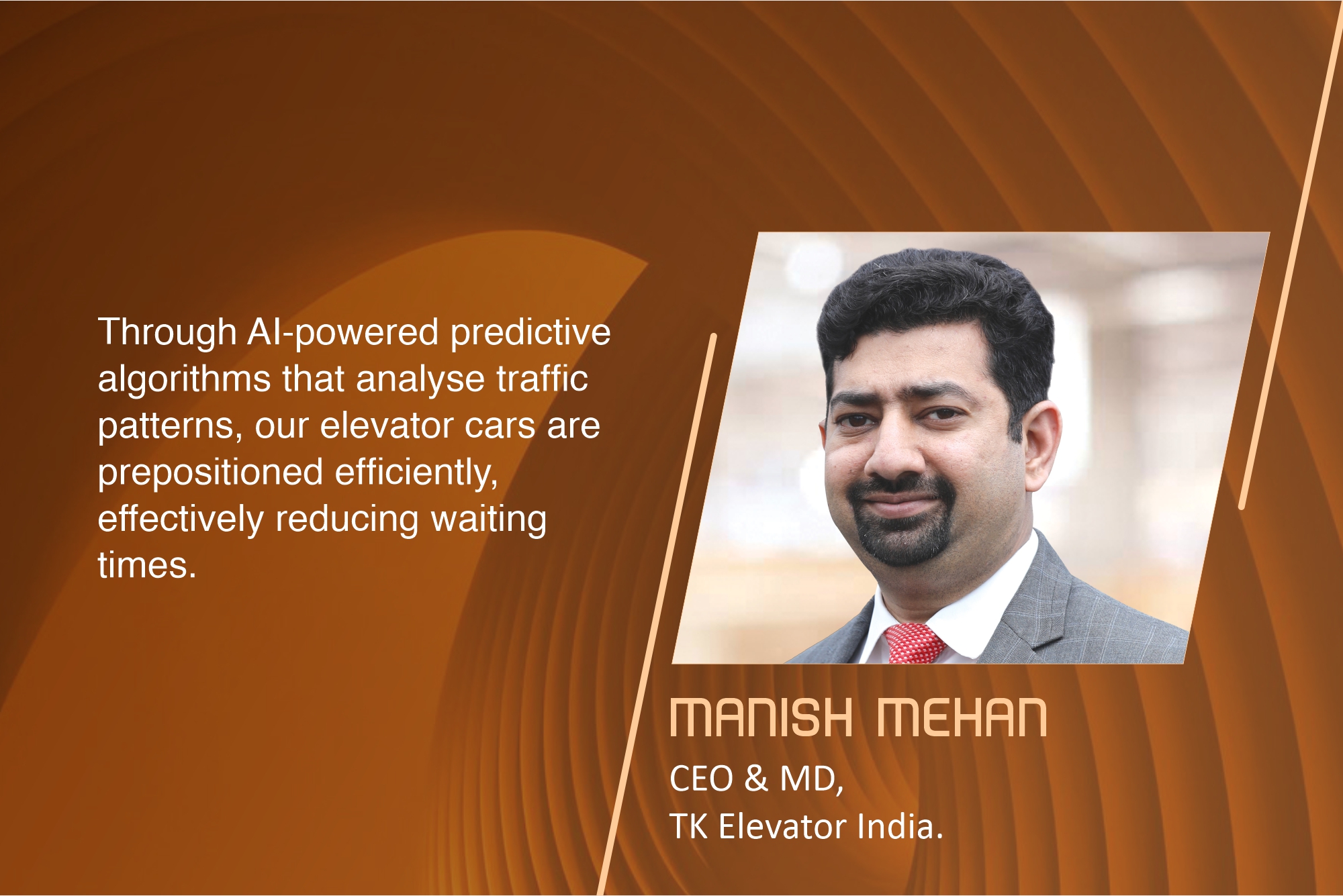TK Elevator elevates urban living with smarter, faster vertical mobility solutions

In this interaction, Manish Mehan discusses how TK Elevator redefines vertical transportation by integrating sustainable production, responsible material sourcing, and green logistics.
What vertical transportation products and services do you offer for residential and industrial sectors?
TK Elevator is a global vertical transportation and urban mobility leader, offering innovative mobility solutions for diverse segments. Our extensive product portfolio ranges from standard elevators for low-rise residential buildings to highly customised solutions for skyscrapers and private homes. We also provide escalators, moving walks, passenger boarding bridges, and stair and platform lifts.
Describe the maintenance strategies that your company undertakes to avoid elevator breakdowns and enhance the safety and reliability of users.
A key component of our approach to safety is MAX, our company’s cloud-based predictive maintenance solution powered by AI and IoT. MAX enables continuous monitoring of elevator performance, detecting potential issues in advance and facilitating technicians to take preventive action before a breakdown. Our rigorous preventive maintenance protocol includes regular inspections, lubrication, and replacement of malfunctioning parts, tailored to the elevator’s usage intensity. All maintenance activities adhere to global safety regulations, including EN 81 and ASME A17, along with national safety standards. We also invest heavily in training our technicians, equipping them with smart service tools, AR-based diagnostics, and digital workflows.

How do you balance power consumption, speed, and safety in your elevator designs?
Our elevators are equipped with regenerative drives that convert excess energy into electricity, feeding it back into the building’s grid. Using high-efficiency permanent magnet synchronous motors (PMSMs) minimises energy consumption. LED lighting and standby modes enhance energy efficiency when the elevator is not used. Speed optimisation is achieved through variable frequency drives (VFDs), which ensure smooth acceleration and deceleration. Through AI-powered predictive algorithms that analyse traffic patterns, our elevator cars are pre-positioned efficiently, effectively reducing waiting times. Our aerodynamic cabin designs minimise air resistance, maximising efficiency while maintaining optimal speed in the case of high-speed elevators.
Our AI-driven monitoring systems help proactively detect potential failures, while our advanced braking systems with dual redundancy ensure safe stopping even in case of a malfunction. Other aspects include seismic and fire-resistant features and automated rescue devices (ARDs) in case of emergencies and power cuts.
What are the challenges of installing elevators in high-rise residential and commercial buildings, and how do you address them?
Chief challenges include structural integration, space constraints, high traffic demands, and energy efficiency. Our destination selection control (DSC) optimises elevator dispatching, reducing wait times, for use in high passenger flow. Machine room-less (MRL) elevators and compact designs address space constraints. Our scaffold-less installation technique ensures faster and safer installations, and vibration reduction and noise minimisation enhance passenger comfort in high-speed elevators.
What practices has your company undertaken to ensure sustainability in various stages, such as production, transportation, material usage, etc.?
TK Elevator is committed to sustainability across all stages of its operations. We ensure eco-friendly manufacturing by utilising renewable energy sources and optimising production processes. Our Indian factory adheres to ISO 45001 environmental standards, and our closed-loop recycling systems further reduce material waste. Regarding material usage, we prioritise recyclable, low-carbon materials such as responsibly sourced steel, glass, and aluminium. We also ensure compliance with RoHS (Restriction of Hazardous Substances), adoption of LED lighting, and regenerative drive technology. Carbon footprint in transportation is reduced through supply chain optimisation by launching regional production hubs, using electric and hybrid delivery vehicles, and minimising packaging waste through smart logistics planning.
For more details, visit: https://www.tkelevator.com/in-en/
Cookie Consent
We use cookies to personalize your experience. By continuing to visit this website you agree to our Terms & Conditions, Privacy Policy and Cookie Policy.










